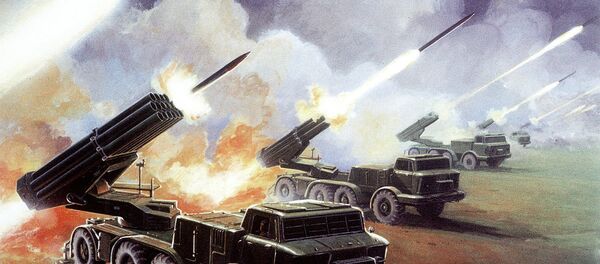The Defense Intelligence Agency's 100 page+ report, a reboot of the 'Soviet Military Power' reports released throughout the 1980s, is chock full of Pentagon-approved information about the ways in which Russia poses a threat to US national security. These include Moscow's efforts to equip its military with modern weapons, its ability to project power in places like Syria, and its "robust nuclear force," capable of staging "a massed nuclear strike on targets in the United States within minutes."
These kinds of claims are nothing new and have been discussed by US officials and media since the deterioration of Russian-US relations in 2014. What's more interesting, says RIA Novosti contributor Vladimir Ardaev, is the extensive attention the report pays to Russia's trolling capabilities.
This, Ardaev says, is a marked departure from the 'Soviet Military Power' reports of decades past, which focused most of their attention on Moscow's existing or future military capabilities.
Russia, according to the DIA, is sneakily using its vast media, hacker, bot and troll armies to target "a wide variety of audiences, including its own population, selected populations of other countries, domestic and foreign political elites, and the West writ large."
On the whole, however, 'Russia Military Power', doesn't really differ so much from the kinds of reports released during the Cold War, Ardaev noted. "Like the Soviet Union before it, Russia is presented as a formidable militaristic state that's successfully building up and improving its military power. Presumably, the goal too remains the same: to leave an impression on the politicians charged with allocating the US budget."
Thank You Captain Obvious
Radio Sputnik observer Ilya Kharlamov took a more light-hearted approach to the Pentagon document. Focusing on a line from the report which reads that "Moscow intends to use its military to promote stability on its own terms and to assert its great power status," the journalist quipped that the DIA had hit on a real "sensation" of a story with such claims. "Does one really need to be an intelligence officer to state the obvious?!" he asked.
Moreover, Kharlamov added, "by steadily expanding NATO's borders to the east, the West is itself pushing Moscow to strengthen its military potential – particularly its nuclear deterrent, to which special attention is being paid…In any case, this systemic work is not being conducted in secret."
Meanwhile, the journalist emphasized that the efforts to skew the real reasons behind Russia's growing military strength are starting to look not just ridiculous, but paradoxical. For example, earlier this week, General Petr Pavel, chairman of the NATO Military Committee, warned about the implications of Russia's growing military might. At the same time, the officer admitted, "when it comes to intent, it's not so clear because we cannot clearly say that Russia has aggressive intents against NATO."
If that's the case, "then what's all is the fuss about?" Kharlamov asked. "Or maybe NATO is hoping that they'll be able to build up their forces on the alliance's 'eastern flank', deploy their missile defense in regions around the globe, put new ships and aircraft into operation, all while Russia sits by as a passive spectator?"
Echoing his colleague, Kharlamov too suggested that it was obvious that the 'Russia Military Might' report was "just another sketchy attempt" to convince officials, and particularly President Donald Trump, that Russia poses some kind of threat the United States.




